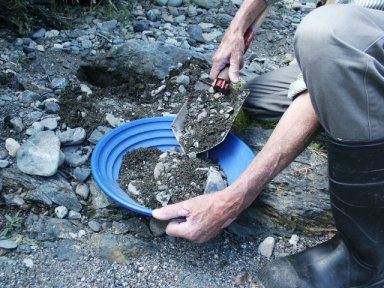Defending the 1872 Mining Law

More and more I feel as if I am an ever-decreasing minority. Just about every week I read an article about an old antiquated law that needs to be removed.
Most of these articles are well-written and well-articulated and pass fiction for fact. Most people don’t understand that the 1872 Mining Law is the only thing that guarantees you the right to go out on public land. One of the things that they point to most is the patenting of land, public land,for $5.00. If I could buy public land for $5.00 an acre, I would be an absolute land baron.
I have a claim that dates back 100 years. It has a bucket line dredge on it and a considerable amount of capital investment. Many ounces of gold have been extracted from this particular claim. If any claim was right for patenting, this would be it.

First I would need to do an independent validity test. This would cost me from $11,000 to $16,000. I would also need to do an environmental impact study and hire an attorney, which would start at $5,000 and, by the time I am through, it would wind up being $25,000. All this I must do without any guarantee that my patent would be accepted and if it weren’t, I would lose everything, even the claim itself. And if it were accepted, the very last thing I would do would be to pay the $5.00. It would be less expensive for me to buy a piece of land in the same area than it would be to take my claim to patent. One could count on ones fingers the number of claims actually patented in the last 40 years. It is just not true that public land is being sold for $5.00 an acre under the 1872 Mining Law.
Another shot of the 1872 Mining Law is that it provides for no environmental constraints. I guarantee you that gold mining is done cleaner in this country than anywhere else in the world. Plan of operation and permits must be filed with the BLM, Forest Service, Fish and Game, DEQ, WetLands, Water Equality, Coastal Commission, EPA, etc., etc., etc …
To say there is no regulation on mining in the United States is a bold-face lie. They also state that there are no royalties paid on gold mining in the United States. Let me explain something about gold: If an environmental group solicits $100,000 from its members, that money comes out of their pockets, goes to the organization and they pay an attorney or a politician to shut down a mining operation. That money is just changing hands from one person to another person, no wealth is being created. But if a mining operation pulls out $100,000 worth of gold, that is real wealth. The wages and taxes the employees pay comes from the ground. They take those paychecks and spend them at the local store. That money increases the wealth of us all. It is created wealth, real wealth. I do not pretend to defend large-scale mining, but I know that we need these minerals and if we do not get them, we surely buy them some place else.
And to think that mining will be done cleaner and safer to our planet in Bolivia or Indonesia or Africa is not wise thinking if one is a true environmentalist. We need to keep the mining industry in this country strong. Slapping a royalty on top of the small margin that most mines operate under would not be a wise decision. With the depressed gold prices, a lot of mines have shut down because they can only make a profit at around $350 an ounce.
Don’t believe everything that you read in the paper as fact. Sure there were some areas in the past that were mined and now need to be cleaned up. But let’s not throw the baby out with the bath water.
If you have the fortitude to go out and search for these minerals, if you find them, you should have the right to keep them. The 1872 Mining Law was created with a sense of fair play. In this day and age where our freedoms are being eroded away bit by bit, we can ill afford to lose this one for future generations of prospecting.

